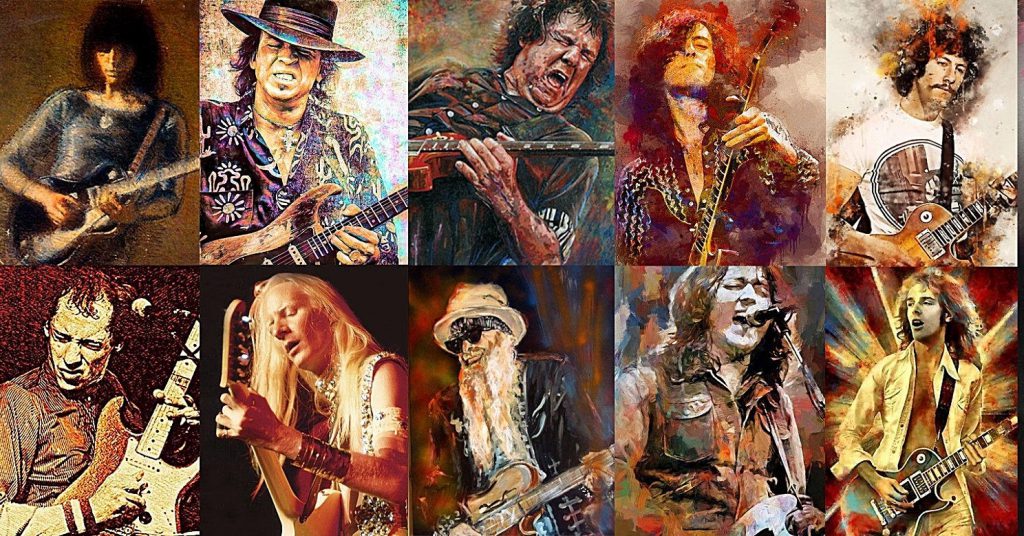Here are Paule’s golden rules for buying your first electric guitar. Follow these to ensure that you enjoy playing your first instrument.
Always buy from a ✅ trusted dealer and not a ❌ private seller.
If you head to Trademe or other online marketplaces, you will see loads of guitars for sale, but you don’t know how they have been looked after. Unfortunately these marketplaces are fraught with scammers looking to take advantage of all buyers, but especially first time purchasers.
Private sales can go smoothly or be equally fraught with pit holes and traps for the unsuspecting buyer. As a beginner, it may be easy to spot little imperfections or nicks in the paintwork, but the more serious issues that can affect guitars playability, i.e. warn frets / faulty wiring / repaired head stocks, etc. can be much more challenging for a beginner to spot.
Ideally take an ✅ experienced guitarist with you to buy your first guitar.
Following this one rule will save you from making 99% of bad buying decisions!
Always ✅ read reviews.
Some manufacturers are more reliable with their build quality than others, but even within one brand the quality can vary from one guitar to the next, even at the same price point.
YouTube reviews will help you learn all the essential technical specs about the hardware on your guitar and most importantly hear how it sounds when it’s played by a knowledgeable player.
Listen to the guitar in ✅ action if you possibly can.
It’s a good idea to go to a music shop and play the guitars yourself and determine whether you like the sound and the feel. Don’t worry if you can’t play a note, just hold the guitar and strum down through the strings. Move your fingers along the strings on the fretboard. Does the guitar feel comfortable to you? Does it fit your body size?
Ask the store’s guitar player to ✅ demonstrate the guitar for you.
If you’re alone on your shopping trip, ask which guitar he/she would buy if he/she was buying his/her first electric guitar, and then ask why they chose that brand and that model.
Many people like to order online these days. Never buy a guitar you haven’t seen or heard demonstrated first. Find YouTube videos of it in action, or even videos on the manufacturer’s website.
Note: Any cheap guitar or amp can sound amazing in the hands of a skilled professional. Try to listen objectively to the guitar tones when they are played through a clean channel on the amp. Distortion effects can make most guitars sound good and distract you from the actual quality of the pick-ups.
Beware of making solely a ❌ vanity purchase.
Most guitarists get excited and horribly tempted by words like “vintage”, “signature model” and “limited edition”. There’s nothing wrong with this, but generally these instruments come at a higher price point and buying this type of guitar won’t necessarily make a beginner guitar player sound any better. Things that will make you sound better is buying a guitar with a straight neck and good quality frets, good quality pickups, reliable tuning heads, good quality wiring harness, etc.
Pick a budget and ✅ stick to it.
If your budget is on the low end, you should be able to buy a decent starter guitar at a price point of $400 to $500. It’s not worth buying a cheaper model. Trust me when I say you will end up paying just as much again in visits to the guitar tech when things go wrong.
You don’t need to spend your life’s savings to get a decent guitar, but once you start browsing online learning about different models, features, etc. it is easy to fall in love with a particular brand and model of guitar! It’s important that you actually enjoy playing your instrument, as this is what will help you learn. If you buy the cheapest possible in guitar in the shop, it may not be something that excites you enough to keep practicing (though if it does, that’s great too!).
Welcome to the obsession zone. Keep in mind it’s likely that the first guitar you will buy won’t be your last. Meaning buy on a budget, learn your instrument and upgrade later as your playing skills develop.
Mums and dads and anyone else, if you’re stuck and need advice in this area, direct message or call me. Better advice leads to better guitar playing!

